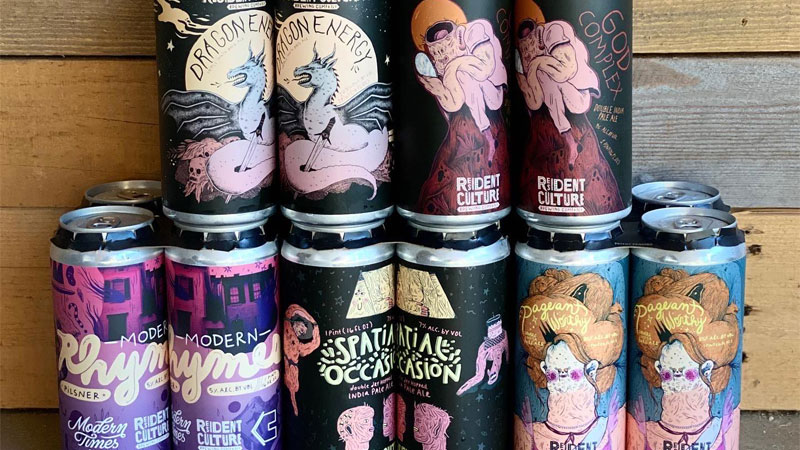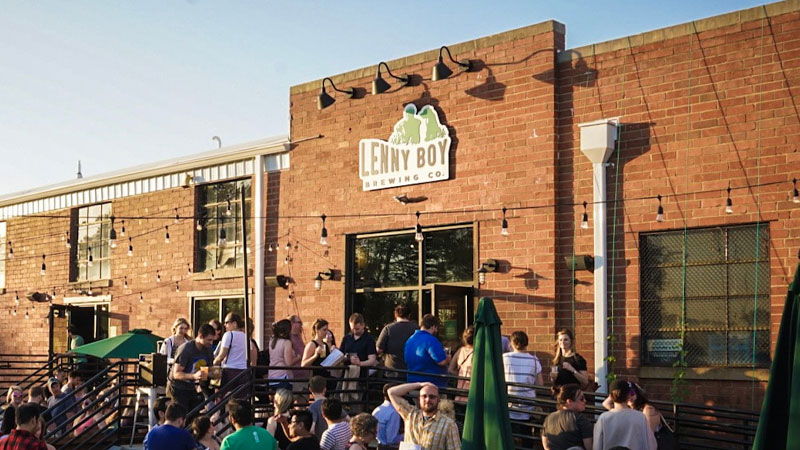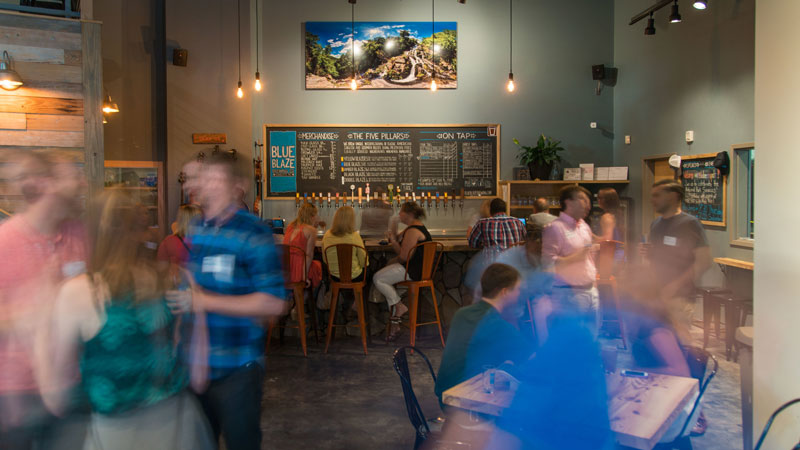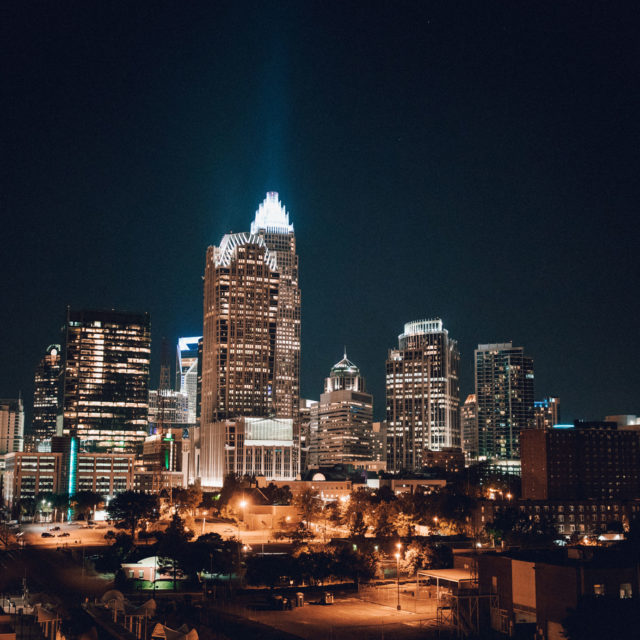“At one point in my life, I felt like a unicorn,” says Dianna Ward. “I have short hair, I’m African American, I’m a lesbian… [I thought], ‘oh my gosh, there’s not going to be a space for me down here.’”
Ward is the founder and executive director of Charlotte’s non-profit bike sharing program, Charlotte B-cycle, and the owner and operator of Charlotte NC Tours, a company that specializes in showcasing the city’s food and beer scene. She attributes her success in part to Charlotte’s sense of community — and believes the city’s craft breweries are building and bolstering the inclusive space she and so many entrepreneurs look for.
“In a lot of places, if you [say], ‘hey, I want to open a business,’ you may find resistance and a few rings to kiss,” Ward says. In Charlotte, she adds, “if you have a good idea, people are going to line up to help bring that to fruition.”
Charlotte’s welcoming spirit — as well as its social and economic progress — is evident from the parking lot of Resident Culture Brewing Company. Resident Culture is in Plaza Midwood, a neighborhood on the northern side of Central Avenue, a busy four-lane road that whizzes past fenced-in industrial businesses and warehouses. While downtown Charlotte is dominated by skyscraping office buildings, hotels, and concrete parks, neighborhoods like Plaza Midwood are becoming more neighborly.

Resident Culture is one of its major draws. The brewing facility includes a custom-built coolship, and the walls are painted with murals produced by in-house illustrator Maryssa Pickett, who also creates the company’s beer labels. Barrels enjoy ample space to age delicate sour beers being produced under the watch of head brewer Chris Tropeano, who previously worked at one of craft beer’s West Coast stars, Russian River Brewing.
Resident Culture has also become a community space, hosting fundraisers, live music, and events for organizations like the Charlotte LGBT Chamber of Commerce.
Amanda McLamb, who co-founded Resident Culture with her husband Philip, describes Charlotte as “a place you can have a dream and see it through to conception,” adding that in other cities, “the ability to truly bootstrap and create a dream from scratch is a lot more difficult.”
The renaissance in Plaza Midwood, and across the city in general, is thanks in part to the fact that Charlotte is one of the single fastest-growing metro areas in the country. Between 2017 and 2018, Charlotte gained just over 13,000 residents, many of whom were drawn in by the low cost of living and new jobs. These new Charlotteans include small business owners who see the city as a promising place to start a new venture. According to the Charlotte Regional Visitors Authority, there are now more than 50 breweries within the city.
The McLambs were two of those first to bring craft beer to Charlotte. When Philip’s family was thinking of selling the warehouse that now houses their brewery, he and Amanda were able to persuade his parents to let them repurpose it. The sense of community, and the fact that it’s significantly easier to start a business in Charlotte than New York City, where Amanda is originally from, drew them in.

This entrepreneurial spirit is palpable in other parts of Charlotte as well. At Lenny Boy Brewing in Southside Park, two separate brewing systems — one for beer and one for kombucha — share the same roof, helping differentiate the brewery from others in town. Salud Cerveceria, a brewery, restaurant, and bottle shop in NoDa [North Davidson], was named the best beer bar in the country by USA Today in 2019. Owner Jason Glunt says he and his wife Dairelyn try to protect their vibe by keeping things small and personal.
“We sell 95 percent of our beer right here [on premise] and I don’t want to be too big,” Glunt says. Expansion could lead to the brewery being financially over-leveraged, and might also impact the friendly, casual environment they’ve cultivated. Styles of beer brewed at Salud Cerveceria span the experimental to the familiar: While Glunt and head brewer Dustin Di Lorenzo opt for local, in-season ingredients like peaches and foraged sumac, and the taproom typically offers multiple IPAs on draft, the brewery also prides itself in its perennial “all-the-time beer,” Del Patio, a Mexican-style lager made with flaked corn.

On her tours and when speaking with friends, Ward recommends numerous breweries across the city, but she’s quick to highlight Blue Blaze Brewing Co., located in Charlotte’s West End, a historic neighborhood with a predominantly African American population. “Blue Blaze could have opened up anywhere, in South End or NoDa… the places that have already ‘arrived,’” she says. She commends Blue Blaze for the choice “to open up in an old mill in a part of town that wasn’t getting a lot of love at the time,” she says.
For Blue Blaze owner Craig Nunn, the location was an obvious choice. His brewery has an ethos focused on outdoor recreation, and the location places the brewery directly next to a stream and two parks, all within a mile of the city center. More importantly, he says, “once we got to meet our neighbors and community leaders, it just felt like home.”
